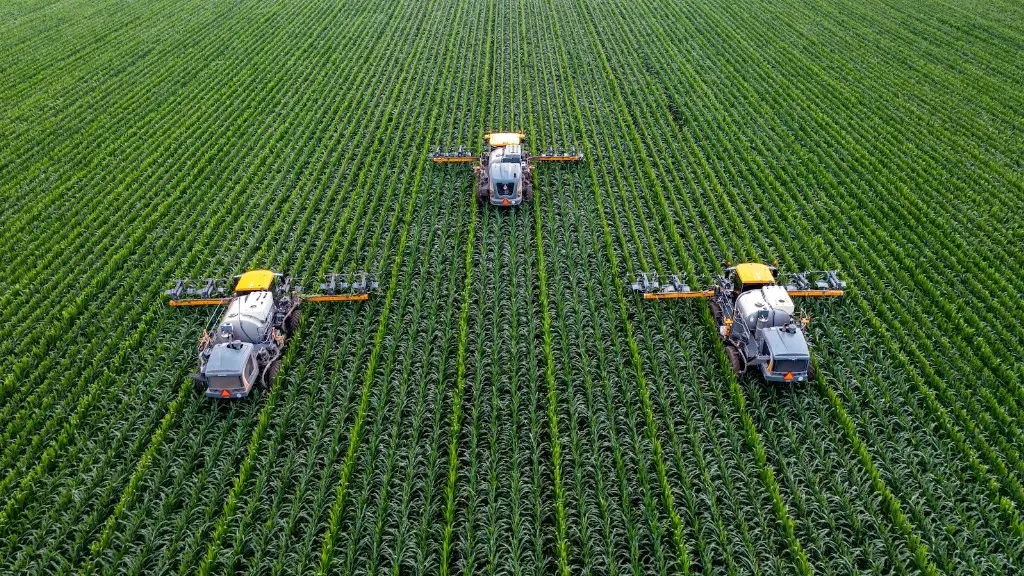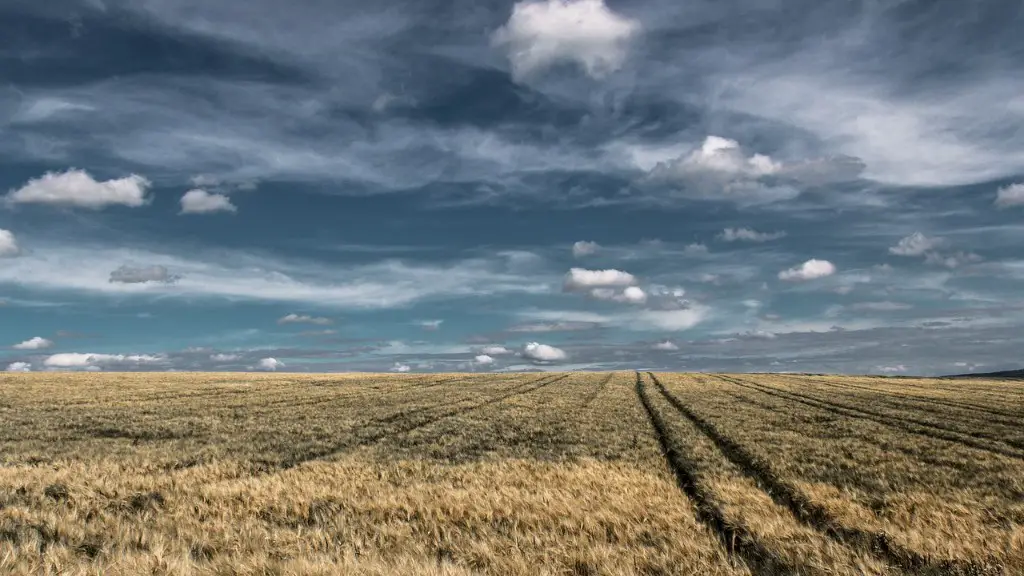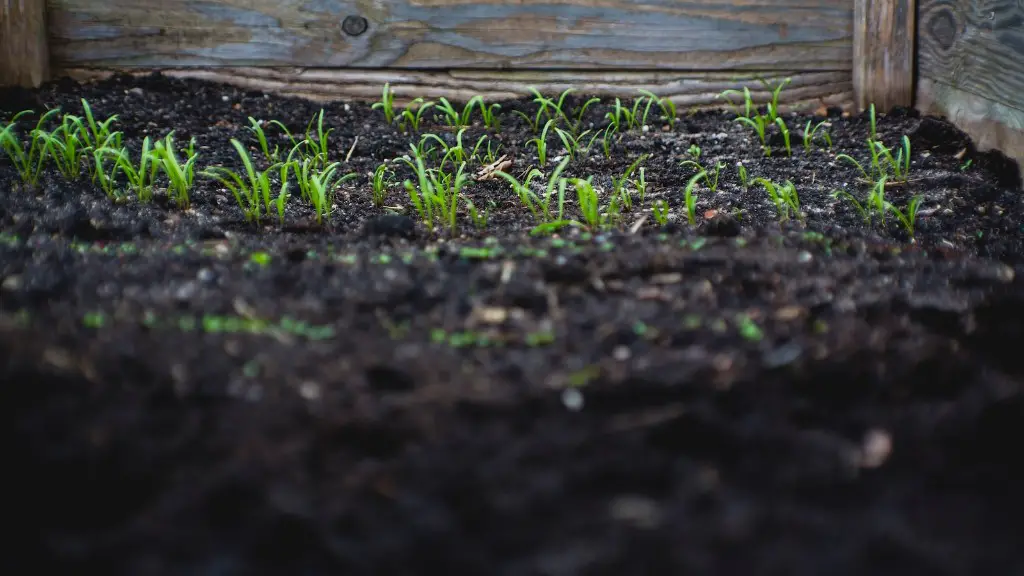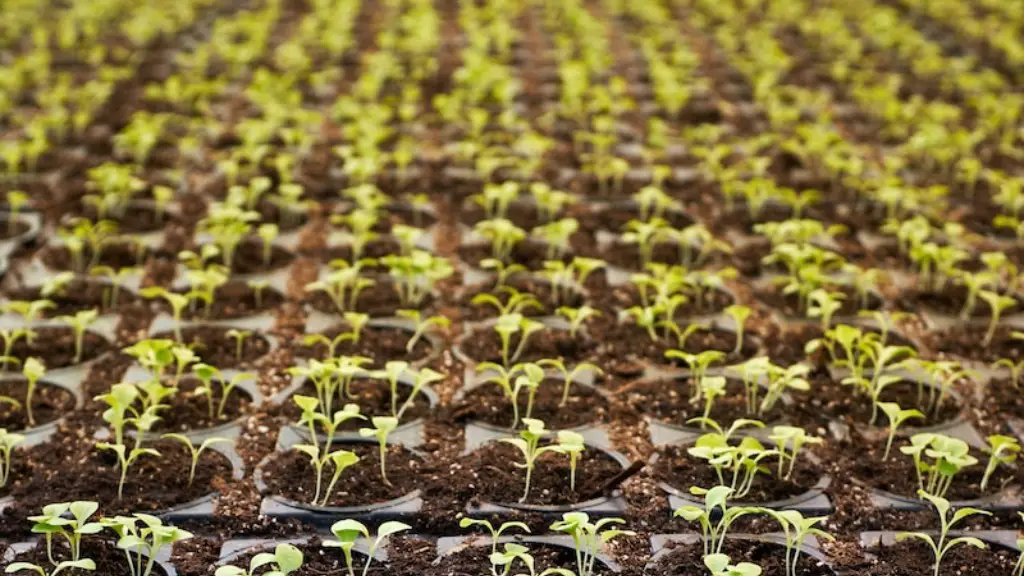Plant science and agriculture is important to study because it is the basis for food production. As the world’s population continues to grow, there is an increasing demand for food. Agricultural education provides students with the knowledge and skills needed to enter the workforce and help meet this demand. In addition to providing food, agriculture also plays a significant role in the economy and in the environment.
Agriculture education is important because it provides students with the knowledge and skills they need to be successful in the agricultural industry. Agriculture is a ever-changing and complex industry, and it is essential for students to have a strong foundation in agriculture education in order to be successful.
What are the 3 important parts of an agriculture education program?
The three-circle model of agricultural education provides a comprehensive approach to instruction that encompasses classroom and laboratory instruction, leadership development, and experiential learning. This model is designed to develop students’ skills and knowledge in all aspects of agriculture, from production to marketing to management. By providing a well-rounded education, students will be prepared to enter the workforce as knowledgeable and skilled professionals.
Agriculture education is important in public schools because students learn ways to efficiently feed a burgeoning population and gain a better understanding of food production and distribution. By understanding these concepts, students can make more informed decisions about the food they eat and the impact their choices have on the environment. Additionally, agriculture education can help students develop critical thinking and problem-solving skills that can be applied in other areas of their lives.
What are 3 reasons why agriculture is important
The main reasons why agriculture is important are as follows:
1) It is the main source of raw materials for industries.
2) It is important to international trade.
3) It plays a big role in a nation’s revenue.
4) It provides employment.
5) It is crucial to a country’s development.
6) It can help heal the environment.
7) It goes hand-in-hand with war.
8) It helps to improve the quality of life.
The present era of farming contains many activities, but it can be broadly divided into two main categories: production and marketing. Agriculture is important because it provides food, fiber, and other products essential to human survival and wellbeing. In addition, agriculture plays a vital role in the economy, providing jobs for millions of people around the world.
What is so important about agriculture?
Agriculture is essential to society and its development. It provides food for people and animals, raw materials for industry, and employment for many people. Agriculture also contributes to the economy through trade.
Agriculture plays a vital role in the economic growth and development of a country. It is the backbone of the country’s economy and contributes significantly to its GDP. Agriculture provides food for the people and raw materials for industries. It is a major source of employment for the rural population and plays an important role in the socio-economic development of the country.
What is the most important in agriculture?
Agriculture is responsible for supplying the world with food, making it one of the most important industries in the world. Without agriculture, the world would be unable to meet the food needs of its population. The agriculture industry is responsible for everything from harvesting crops to raising livestock, making it a vital part of the global food supply chain.
Agricultural workers should also possess excellent dexterity, listening skills, and physical stamina. They also need to be able to operate farm machinery.
What are the impacts of agriculture to the society
There is no denying that agriculture has taken a toll on the planet. As the world population has increased, so has the demand for food. This has led to more pressure on land and water resources, often resulting in land degradation. Agriculture is also a major contributor to greenhouse gas emissions, which are a leading cause of climate change. Although we rely on agriculture to feed the world, we must be mindful of the impact it has on the environment and take steps to reduce its negative impacts.
The world’s population is projected to reach 9.7 billion by 2050, which means we will need to produce more food than ever before. To do this, we need to develop high-yield crops, boost irrigation, increase the use of fertilizers, improve market access, regulations, and governance, make better use of information technology, and adopt genetically modified (GM) crops. We also need to reform land ownership with productivity and inclusiveness in mind. With the right policies in place, we can meet the challenge of feeding the world’s growing population.
What skills do you gain in agriculture?
Being a successful farmer requires a wide range of skills. Key skills include problem-solving, interpersonal, farm management and organizational skills. These skills can be used in a variety of ways, from communicating with farmhands to tending crops and repairing machinery. Being able to effectively use these skills can make the difference between a successful farm and one that struggles to make ends meet.
An agriculture degree provides students with the opportunity to learn key skills that are essential in the agricultural industry. One of the most important skills is time management. Being able to work to a tight schedule is essential in agriculture, as deadlines are often set by the seasons. Another key skill is critical thinking. Being able to access a treasure trove of research and apply it in a practical way is essential in agriculture. Communication is also key, as agriculture is a highly collaborative industry. Finally, working with technology is also an important skill to learn during an agriculture degree.
What are the challenges in agriculture
Climate change is inevitable and farmers must adapt to the new reality. With less than 12% of the world’s land usable for farming, and farming using 70% of the world’s fresh water, there is little room for error. Additionally, agriculture, forestry and other land use causes 23% of greenhouse gas emissions, further exacerbating the effects of climate change. To mitigate the negative impacts of climate change, farmers must adapt their practices to become more efficient and sustainable.
Community agriculture can play an important role in fostering environmental connectedness, political consciousness, and activism among youth and adults. Additionally, it can decrease stormwater runoff and air pollution, and increase biodiversity and species habitat.
How agriculture changed the life of human life?
The neolithic revolution, which occurred about 10,000 years ago, was a watershed moment in human history. Agriculture allowed for the domestication of plants and animals, which led to the settling of populations in one place. This, in turn, allowed for the development of civilizations and the growth of cities.
More abundant food supplies could support denser populations, and farming tied people to their land Small settlements grew into towns, and towns grew into cities Agriculture produced enough food that people became free to pursue interests other than worrying about what they were going to eat that day. This led to the development of civilizations. Throughout history, the rise of civilizations has been closely linked with the advancement of agriculture.
How can we encourage people in agriculture
The use of information and communications technologies (ICT) and social media to promote and inform the youth about agriculture is beneficial for the industry. It is a way to encourage the youth to consider agriculture as a career option and to learn about the different aspects of agriculture. This will help to create a workforce that is knowledgeable about the industry and its needs.
The youth should not only be taught about integrated farming, but also about latest techniques in mushroom farming, freshwater aquaculture and dairy farming. This will ensure that less land and resources are used and that farming techniques are more profitable.
Warp Up
Agriculture education is important for a number of reasons. First, it teaches students about the science and technology of agriculture. This knowledge is necessary for students who want to pursue careers in agriculture or related fields. Second, agriculture education helps students develop an understanding of the economic and business aspects of agriculture. This knowledge is essential for students who want to start their own farms or agricultural businesses. Finally, agriculture education helps students learn about the environmental and social aspects of agriculture. This knowledge is important for students who want to become involved in environmental or social justice issues related to agriculture.
Agricultural education is important for a number of reasons. First, agriculture is the backbone of any economy and the world economy is increasingly dependent on agriculture. Second, agriculture is a complex and ever-changing field, and those who wish to enter into it need to be properly educated. Third, agriculture is an important part of our heritage and culture, and those who are involved in it need to be able to pass on their knowledge to future generations. fourth, agricultural education is necessary to protect our food supply and to ensure that our food is safe and healthy. Fifth, agricultural education is important for the environment. Those who are involved in agriculture need to be able to understand and manage the natural resources that are necessary for their operations. Agricultural education is important for all of these reasons and more.





